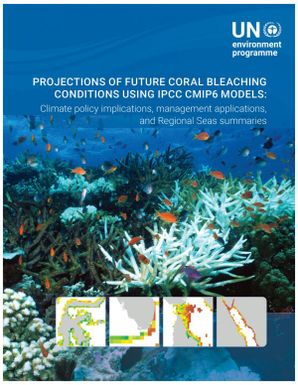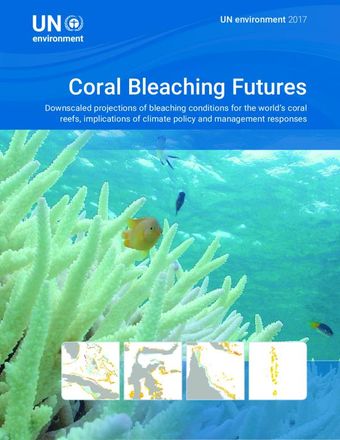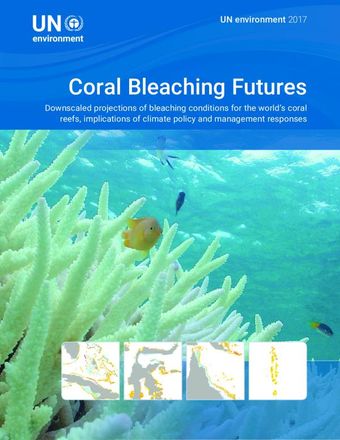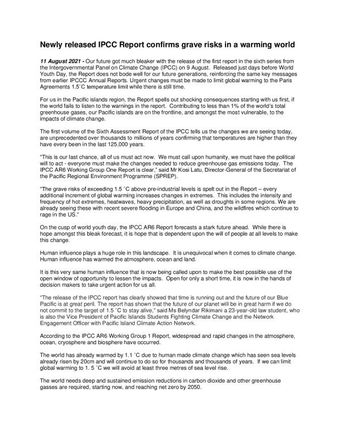Projections of future coral bleaching conditions using IPCC CMIP6 Models: climate policy implications, management applications, and Regional Seas summaries
- Description:
- The third global coral bleaching event, which started in 2014 and extended well into 2017, was the longest coral bleaching event on record. The length of the event means corals in some parts of the world had no time to recover in 2014, 2015 or 2016 during the cool/winter season, prior to experiencing bleaching the following year. This recent global bleaching event of 2014-2017 represents what climate model projections presented in this Report suggest may become the norm over the coming two decades. Importantly though, great spatial variation exists in the projected timing of the onset of annual severe bleaching (ASB) conditions among the world’s coral reefs. This report updates the UNEP 2017 report with projections of the timing of severe coral bleaching conditions using the new generation of climate models used by the IPCC – the CMIP6 generation of models.
- Display date:
- 2020
- Location:
- Worldwide
- Collections:
- Secretariat of the Pacific Regional Environment Programme (SPREP)
- Publisher:
- United Nations Environment Programme
- Content partner:
- Secretariat of the Pacific Regional Environment Programme (SPREP)
- Availability:
- Not specified
-
Copyright status: All rights reservedFind out more about what you are able to do with this itemThis item is all rights reserved, with means you'll have to get permission from Secretariat of the Pacific Regional Environment Programme (SPREP) before using it. For more information, please see our use and reuse page.What can I do with this item?Non-infringing useNZ copyright law does not prevent every use of a copyright work, and this item may be hosted by an international institute or organisation. You should consider what you can and cannot do with a copyright work.No sharingYou may not copy and/or share this item with others without further permission. This includes posting it on your blog, using it in a presentation, or any other public use.No modifyingYou are not allowed to adapt or remix this item into any other works.No commercial useYou may not use this item commercially.
Related items
Welcome and warm Pasifik greetings
The information on this site has been gathered from our content partners.
The names, terms, and labels that we present on the site may contain images or voices of deceased persons and may also reflect the bias, norms, and perspective of the period of time in which they were created. We accept that these may not be appropriate today.
If you have any concerns or questions about an item, please contact us.



